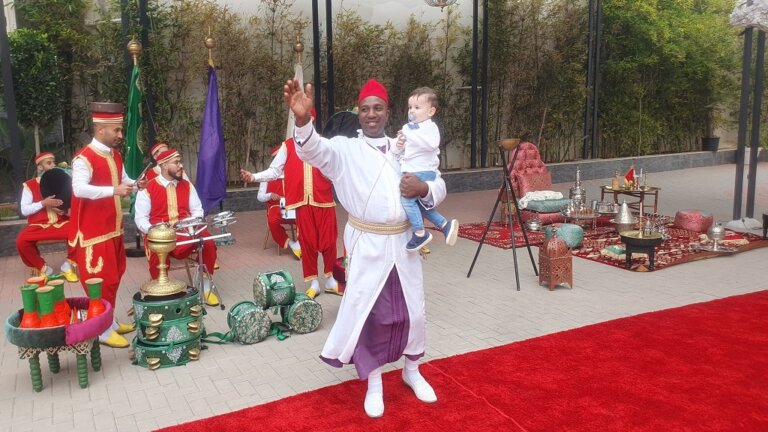
Tea: A Cornerstone of Moroccan Culture
Tea is an ancient beverage that has transcended time to become a central element of Moroccan culture. Although it originated in China, it has deeply rooted itself in Moroccan society. Today, tea represents much more than a simple drink; it is a true symbol of hospitality, generosity, and unity. Each region of Morocco has its own tea preparation ritual, reflecting local values and traditions while embodying principles shared by all Moroccans. But how has this infusion managed to occupy such a significant place in the daily lives of Moroccans?
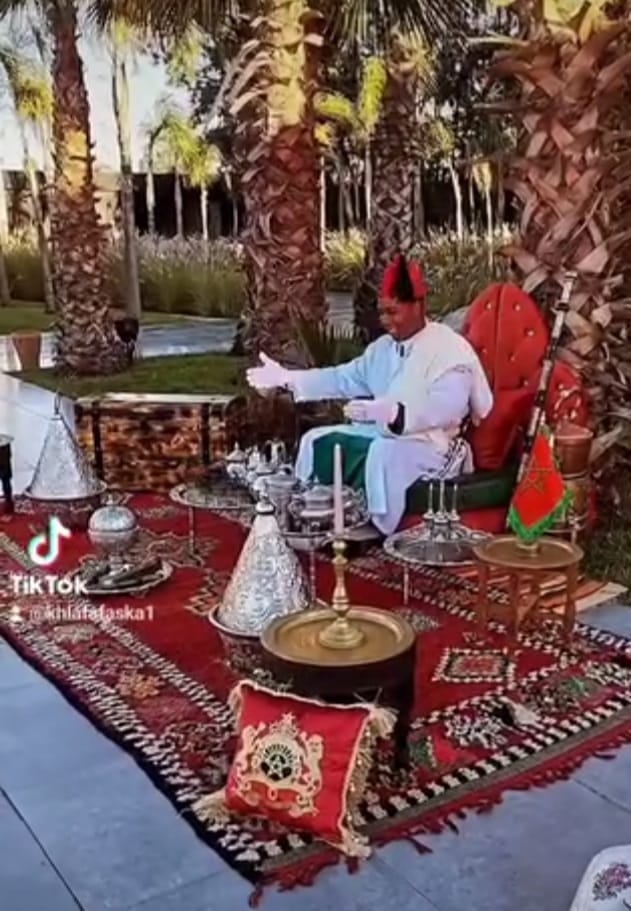
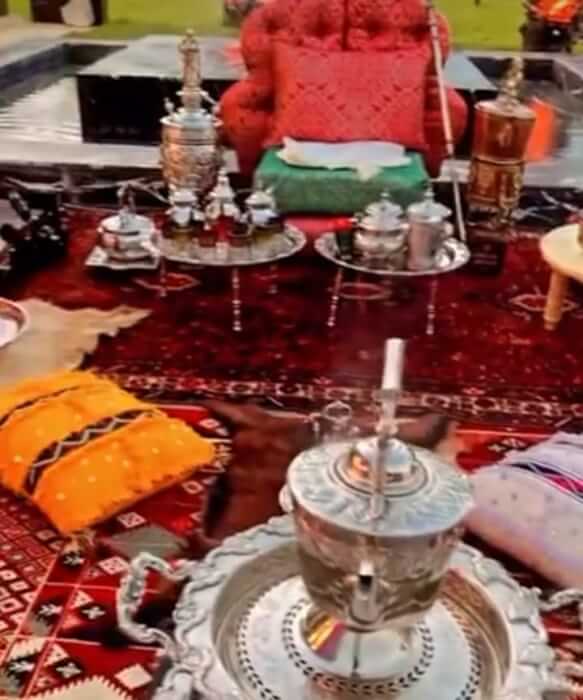
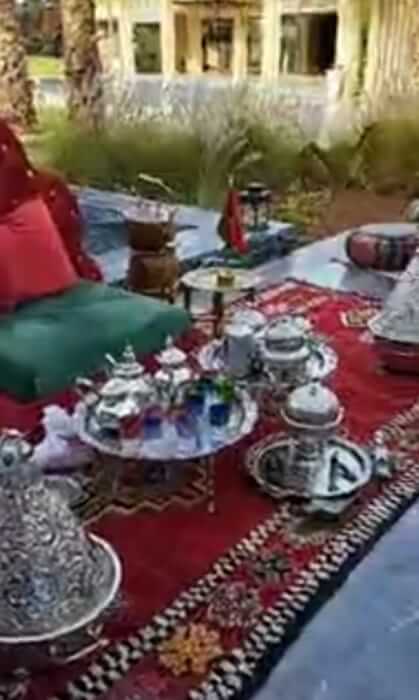
The Origins of Tea: A Journey from China
Imported from China in the 12th century, green tea became Morocco’s iconic beverage, cherished by all social classes. Commonly referred to as « Atay, » tea is enjoyed an average of five times a day, and its preparation is steeped in a tradition of conviviality and hospitality.
The Mint Tea Ceremony: A Journey to the Heart of Moroccan Hospitality
Origins and Philosophy
The Moroccan tea ceremony is based on an Islamic concept of hospitality that encompasses three elements: God, the guest, and the host. For the guest, hospitality is a right; for the host, it is a duty towards God and the guest. This tradition is manifested through four fundamental principles:
- Marhaba – Welcome
- Salam – Peace
- Al Barakah – Blessing
- Alhamdulillah – Gratitude
These values are taught in Moroccan schools, and the Master of Ceremony, often trained in various fields, perpetuates this tradition through a shared life experience with the community.
Traditionally, men perform the ceremony, particularly during significant occasions.
Utensils of the Ceremony
The Master of Ceremony uses several utensils to serve mint tea, including:
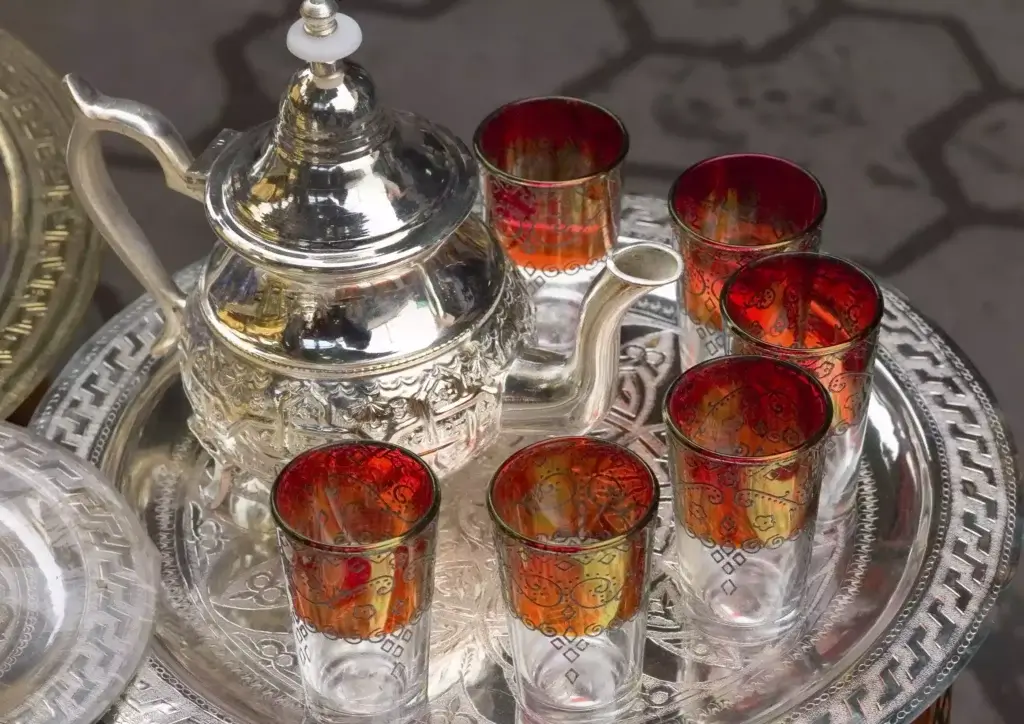
- Moroccan Teapot (Barad Atay)
- Tea Glasses (Kass Atay)
- Tea Tray (Siniat Atay)
- Tea Box (Eulbate, Kabsat, or Bakiat Atay)
- Mint Box (Eulbate Nanaâ)
- Sugar Box (Moroccan sugar loaf)
- Tea Spoon for transferring tea
- Embroidered napkin set for the Moroccan tray
- Traditional Hand Washing Bowl (Tass)
- Rose Water Sprayer to perfume the guests
Traditionally, guests bring gifts according to the circumstances and their means, enriching the sharing experience.
The Atmosphere of the Tea Salon
The Moroccan tea salon evokes tales from One Thousand and One Nights. In a warm atmosphere, floor rugs and an array of cushions invite relaxation. Seating is often low, surrounded by plush sofas, while colorful curtains and adorned textiles enhance comfort. The floors are covered with Berber carpets, and an awning above the seating creates an intimate setting. Lighting from finely crafted copper or brass lamps contributes to the cozy ambiance.
The Tea Ritual: An Expression of Hospitality and Art
Ceremony Process
The mint tea ceremony can take several forms, but the most common is as follows:
- Purification: The tea master, dressed in traditional attire, greets the guests and prepares the materials. He begins by rinsing the teapot with hot water to preheat it.
- Preparation: He adds two spoons of Gunpowder green tea, followed by hot water. After an initial mix, he pours the first infusion to eliminate bitterness, then adds fresh mint and sugar.
- Tasting: The tea is served to guests in a traditional order. Each person raises their glass, saying « Bismil’Allah » (In the name of God) before savoring the drink in small sips.
- Gratitude: At the end, the host thanks the guests for their presence, and they offer prayers to express gratitude towards the Master of Ceremony.
In an extended version, the ceremony often continues with a traditional meal, such as couscous or tagine, ending with Moroccan pastries, creating a memorable experience of sharing and hospitality.
Different Varieties of Tea in Morocco
Gunpowder Tea: The Essence of Mint Tea
Gunpowder tea is the most widespread variety in Morocco. Its intense flavor and texture pair perfectly with mint and sugar, making it an iconic beverage served during family gatherings, cultural events, or simply in daily life.
Chaâra Tea: A Specialty of the Moroccan Sahara
Chaâra is another cherished variety of tea in the Moroccan Sahara. Composed of long rolled leaves, this tea is prepared according to a unique ritual that includes three successive infusions, each symbolizing a stage of life. The first infusion is bitter, like life’s trials; the second is sweet, like love; and the final one is smooth, like death. This ritual not only reflects the rich local tradition but also emphasizes the importance of hospitality and sharing in the region.
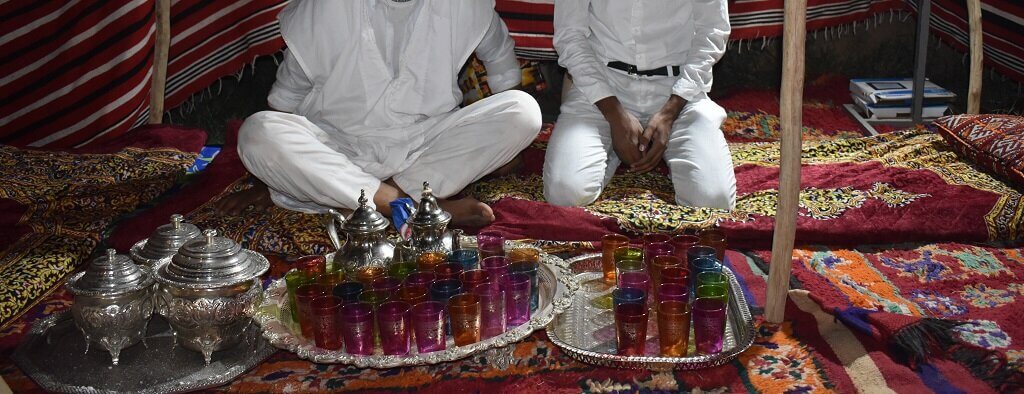
Tea: A Symbol of Unity in Morocco’s Cultural Diversity
Morocco is a country with multiple cultural influences, where each region has its own customs. However, tea serves as a common thread that unites the entire country. Whether in the north, in the Atlas Mountains, in the oases, or in the Sahara, tea embodies values of sharing and respect. By offering tea, Moroccans invite their guests to partake in a moment of conviviality.
This ritual is lived daily in families and during significant ceremonies or traditional festivals. Beyond its refreshing taste, tea symbolizes a strong cultural identity and the unity between the different communities that make up Moroccan society.
Testimonials
“Every time I serve tea to my guests, I offer them a piece of my culture. It’s a sacred moment that strengthens our bonds.” — Fatima, Marrakech
“For me, tea is synonymous with comfort. After a long day, nothing is more soothing than enjoying a glass of mint tea with my family.” — Ahmed, Oujda
Moroccan Tea: A Tradition to Experience
For those visiting Morocco, savoring a glass of mint tea is much more than a mere tasting experience. It is an immersion into a living tradition, a true window into Moroccan culture. Tea, whether served in the tea salons of cities or under tents, tells a story of sharing, respect, and harmony.
In summary, Moroccan tea is an art of living that connects the past with the present, tradition with modernity. Don’t miss the opportunity to live this authentic experience during your next trip to Morocco; a simple glass of tea can open the door to a rich and warm culture.
M.K
Ne partez pas sans nous ! Recevez nos meilleures recommandations de voyage directement dans votre boîte mail. 🗺️ Inscrivez-vous en un clic !
Don't leave without us! Get our best travel recommendations delivered straight to your inbox. 🗺️ Sign up with just one click!